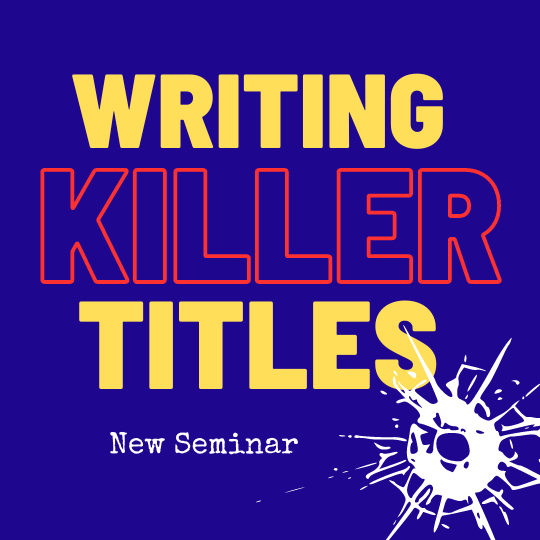- Feb 3, 2024
- LitBits
- 0
New blog post by Claire G – discussions in this thread, please
---
Who the hell do you think you are?
I once heard that authors alternate between two perceptions of their work-in-progress. One is: ‘This is amazing! I’m a bloody genius!’ The other is: ‘This is the worst thing ever written! Ever! In the whole history of story!’ The truth, of course, is that it’s usually somewhere in between.
Self-critiquing can be useful. Everyone has areas that need to be developed, whether that’s relating to character, plot or prose. Knowing that we need to examine our writing with an analytical eye is the first step on the road to improvement.
But self-critiquing has its limitations. It can be difficult to be objective. It can be taken too far due to a lack of confidence or having an overly-critical eye. It can hold us back, give us writers’ block, or even make us give up on a project that’s worth persevering with. The question heading of this section refers to my own inner voice which likes to rear its ugly head now and again. Imposter syndrome is very real and extremely self-limiting, folks.
How can we overcome the issues associated with self-critiquing?
Distance – time away from the manuscript so that you return with a more objective eye.
Balance – what are the pros and cons of your WIP? Try to play to your strengths, identify the areas in need of development.
Feedback – from a trusted reader. Litopia’s Laboratory and weekly Huddles are great for this!
Experience
In my previous posts, I’ve occasionally referred to difficulties I’ve experienced when writing, or those identified when I’ve reflected retrospectively. One was the limitation of writing from the perspective of a ghost (I realised I needed other ghost characters for her to interact with to avoid her being a mere passive observer of life). The other was realising the drawbacks of writing lots of point-of-view characters (differentiating voice, fully-fleshing out each character’s story etc) – I’m still grappling with this one!
But it’s not all bad! My ghost character got to reflect on life and death in a way that a living character couldn’t. My ten pov novel allowed me to explore lots of different characters’ perspectives on a shared experience, which would be otherwise unachievable.
My recent psychological suspense WIPs have their own issues: does the plot make sense? Are there any holes? How can I sustain tension throughout? With the help of a bit of self-reflection, distance and the generosity of other eyes on the manuscripts, hopefully these areas will be soon be resolved (fingers crossed!).
Final Thoughts
Do you self-critique in a balanced way? How do you achieve this?
What limitations do you need to overcome?
What are the strengths and areas to develop in your own writing?
---
By @Claire G
Get the discussion going – post your thoughts & comments in the thread below…
---
Who the hell do you think you are?
I once heard that authors alternate between two perceptions of their work-in-progress. One is: ‘This is amazing! I’m a bloody genius!’ The other is: ‘This is the worst thing ever written! Ever! In the whole history of story!’ The truth, of course, is that it’s usually somewhere in between.
Self-critiquing can be useful. Everyone has areas that need to be developed, whether that’s relating to character, plot or prose. Knowing that we need to examine our writing with an analytical eye is the first step on the road to improvement.
But self-critiquing has its limitations. It can be difficult to be objective. It can be taken too far due to a lack of confidence or having an overly-critical eye. It can hold us back, give us writers’ block, or even make us give up on a project that’s worth persevering with. The question heading of this section refers to my own inner voice which likes to rear its ugly head now and again. Imposter syndrome is very real and extremely self-limiting, folks.
How can we overcome the issues associated with self-critiquing?
Distance – time away from the manuscript so that you return with a more objective eye.
Balance – what are the pros and cons of your WIP? Try to play to your strengths, identify the areas in need of development.
Feedback – from a trusted reader. Litopia’s Laboratory and weekly Huddles are great for this!
Experience
In my previous posts, I’ve occasionally referred to difficulties I’ve experienced when writing, or those identified when I’ve reflected retrospectively. One was the limitation of writing from the perspective of a ghost (I realised I needed other ghost characters for her to interact with to avoid her being a mere passive observer of life). The other was realising the drawbacks of writing lots of point-of-view characters (differentiating voice, fully-fleshing out each character’s story etc) – I’m still grappling with this one!
But it’s not all bad! My ghost character got to reflect on life and death in a way that a living character couldn’t. My ten pov novel allowed me to explore lots of different characters’ perspectives on a shared experience, which would be otherwise unachievable.
My recent psychological suspense WIPs have their own issues: does the plot make sense? Are there any holes? How can I sustain tension throughout? With the help of a bit of self-reflection, distance and the generosity of other eyes on the manuscripts, hopefully these areas will be soon be resolved (fingers crossed!).
Final Thoughts
Do you self-critique in a balanced way? How do you achieve this?
What limitations do you need to overcome?
What are the strengths and areas to develop in your own writing?
---
By @Claire G
Get the discussion going – post your thoughts & comments in the thread below…



